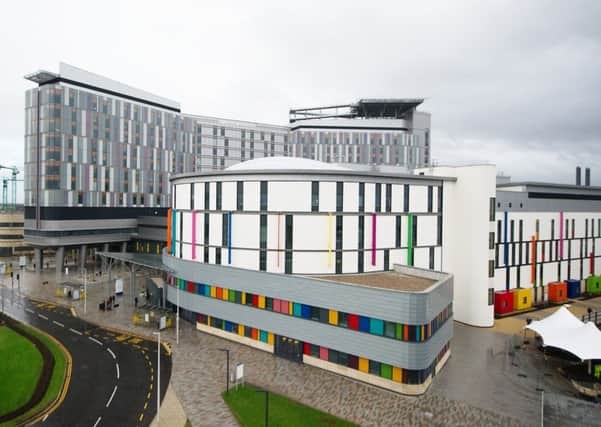New MRI scan in Glasgow to provide boost in tackling Alzheimer's


The 7 Tesla (7T) scanner, which weighs more than 17 tonnes, will allow scientists and clinicians to study the human body in greater resolution than ever before and will be used to boost knowledge of conditions such as Alzheimer’s disease and multiple sclerosis.
The scanner, the first of its kind to be located in a clinical setting in the UK, will be situated at the new Imaging Centre of Excellence (ICE) at Glasgow’s Queen Elizabeth University Hospital (QEUH).
Advertisement
Hide AdAdvertisement
Hide AdRobert Calderwood, chief executive of NHS Greater Glasgow and Clyde, said: “The installation of this high resolution scanner will provide the most advanced imaging facilities in the world on the Queen Elizabeth University Hospital campus.”
The University of Glasgow, along with the health board, was taking delivery of the scanner on Sunday.
The ultra-high resolution scanner has been described as one of the world’s most powerful MRI machines.
The university said it will offer researchers the opportunity to learn more about a host of health conditions.
It will initially focus on brain imaging to look at conditions such as small blood vessel disease of the brain, stroke, vascular dementia, brain tumours, Parkinson’s, Alzheimer’s disease, epilepsy and multiple sclerosis.
Professor Keith Muir, SINAPSE chair of clinical imaging (Stroke and Brain Imaging), who will be leading a clinical research programme using the scanner, said: “The high magnetic field of the 7T scanner will allow extremely high resolution scanning of the body. This technology opens up the possibilities for new clinical and basic neuroscience research.
“In some conditions, looking at very small parts of the brain with the 7T scanner might make a big difference.
“In areas such as Alzheimer’s and some types of stroke, the areas of interest are very small - even microscopic - parts of the brain that we can’t see with the scanner technology that is currently available.”
Advertisement
Hide AdAdvertisement
Hide AdProfessor Dame Anna Dominiczak, vice-principal and head of the College of Medical, Veterinary and Life Sciences at the university, said: “The new 7 Tesla scanner is very important for the University of Glasgow, the city of Glasgow, Scotland and the UK.
“By locating the scanner at the Queen Elizabeth University Hospital, we are bringing advanced precision medicine technology closer to patients, making it arguably the most advanced imaging capability of its kind in the world for patient benefit.”